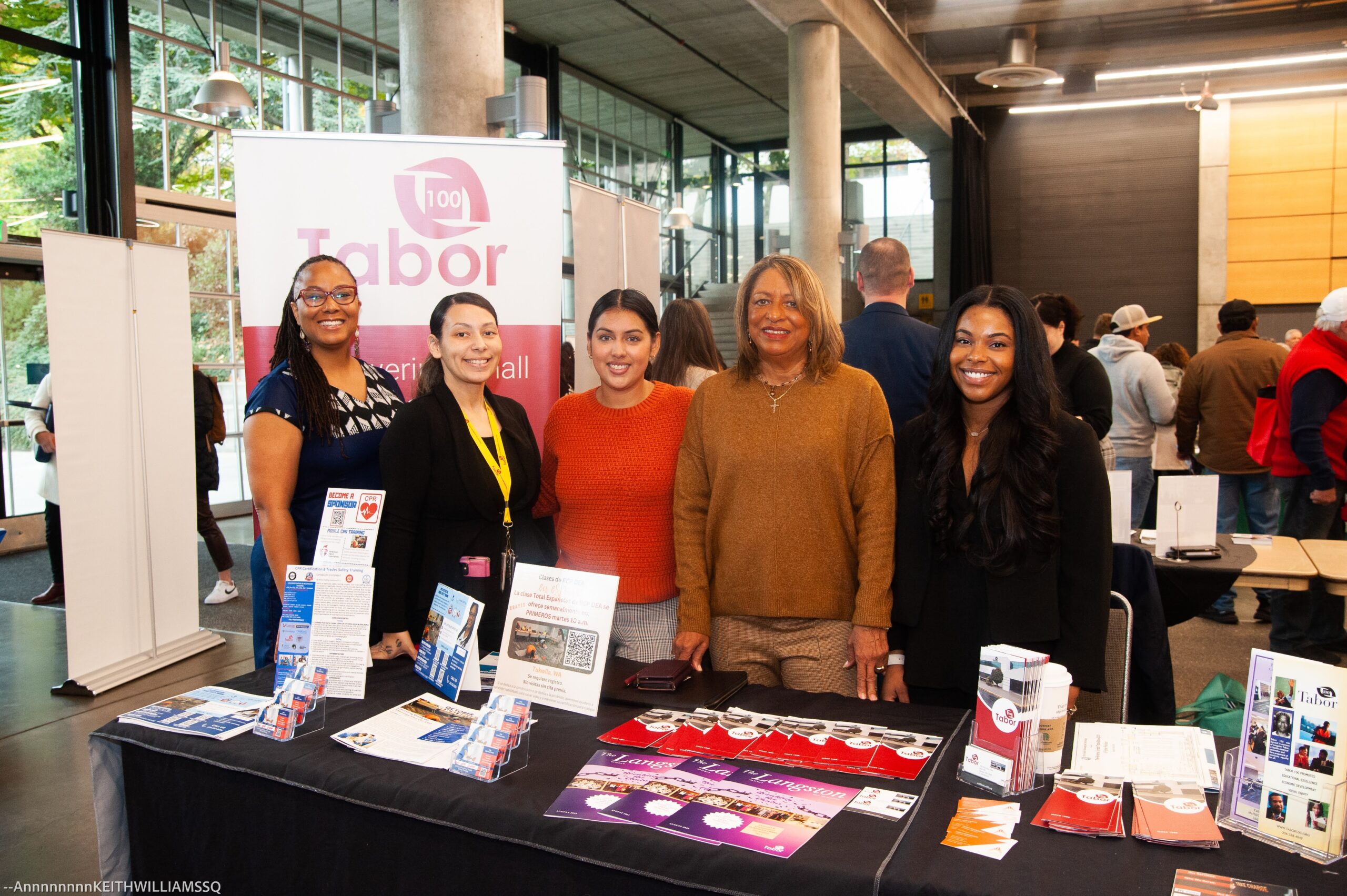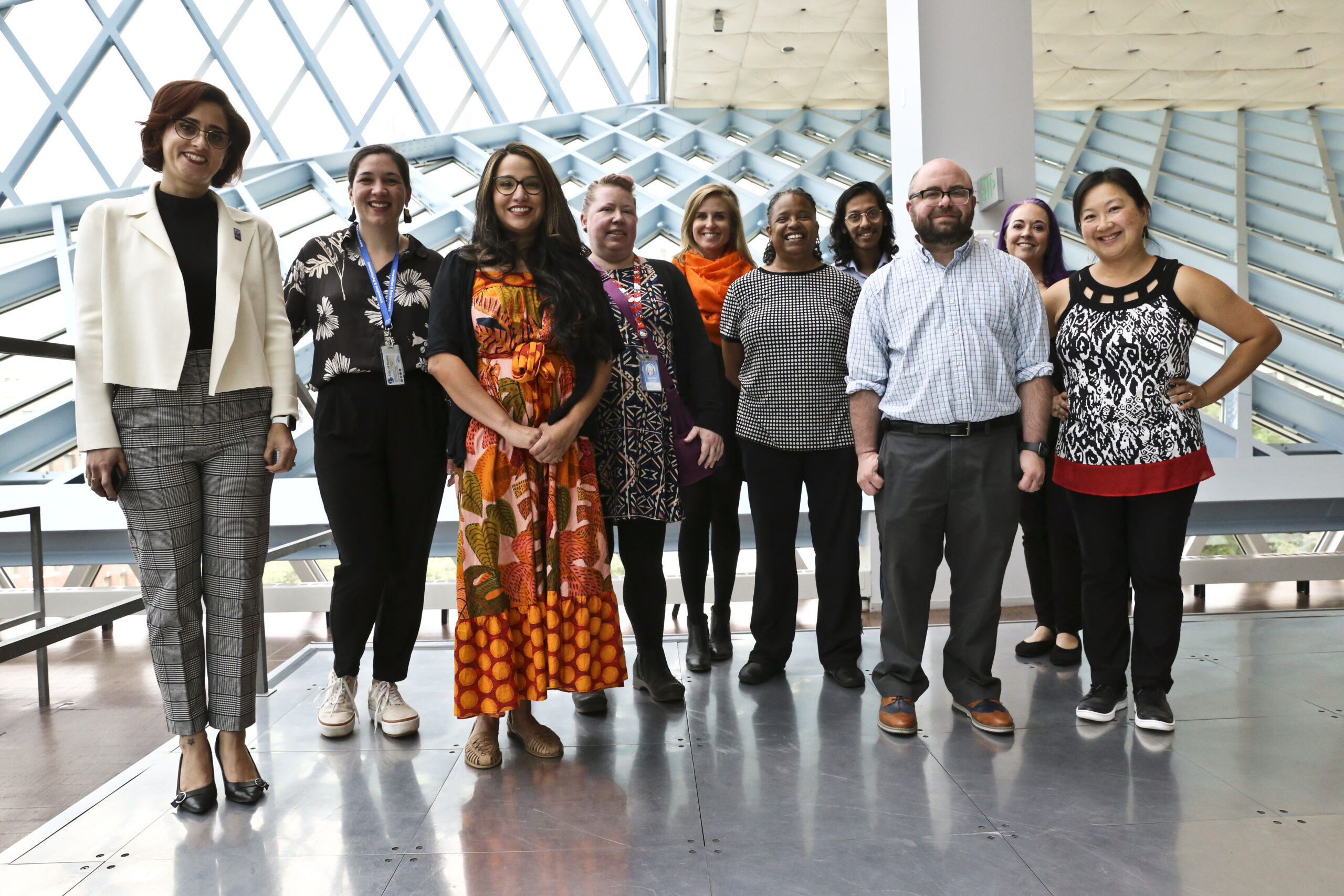 At the Reverse Vendor Trade Show in November, business owners came to network with public agencies and learn about upcoming project opportunities. Photo credit: Flyright Productions
At the Reverse Vendor Trade Show in November, business owners came to network with public agencies and learn about upcoming project opportunities. Photo credit: Flyright Productions The City of Seattle spends a significant portion of its overall budget—about $900 million annually—on purchasing goods and services. While Black, Indigenous and People of Color (BIPOC) account for nearly 38 percent of the city’s residential population, BIPOC-owned businesses earn only 14 percent of the City’s purchasing and contracting spend.
This is why Seattle is leading the way to transform its procurement process to be results-driven, accessible and equitable. Seattle is one of two cities, the other being Syracuse, in the U.S. to be awarded a $1 million, two-year grant by Bloomberg Philanthropies to help transform its approach to buying.
The Bloomberg Procurement Transformation project is a partnership between the Seattle Department of Finance and Administrative Services (FAS), the Innovation and Performance Team, and the Harvard Government Performance Lab. Rebecca Graffy, Assistant Director of the Harvard Government Performance Lab, and Neil Maheshwari, Harvard Government Performance Lab Fellow, work closely with FAS and Innovation and Performance to provide valuable technical assistance on procurement transformation. Seattle staff also participate as part of a cohort with the City of Syracuse and the City of Jackson, learning from the experiences of the City of Long Beach, which has completed a pilot three-year transformation project.
The Procurement Transformation project is breaking down silos between departments to revamp the City contracting process from start to finish. This includes:
- Identifying efficient, equitable, strategic and results-driven changes to ensure there is no “wrong door” for vendors to come if they want to do business with the City, especially for Women and Minority-Owned Businesses and Enterprises (WMBE)
- Digitizing and revamping contracting forms and processes
- Creating a Procurement Community of Practice so that staff across the City can communicate and share knowledge and best practices

The team has made great progress already, including developing a new internal dashboard to track all requests for new contracts and collecting community feedback to revamp Seattle’s Request for Proposals (RFP) process.
To help ensure there is “no wrong door” for businesses including for WMBEs, the project is focusing on Seattle’s own WMBE program. The City created the program to make the City’s spending more equitable, and as a result, spending with WMBE firms continues to grow year over year. Seattle spent nearly $228 million with WMBEs in 2022 for consulting services and contracting for public works projects, but there is still further to go to make spending proportionate and equitable.
Mayor Bruce Harrell also recently introduced a new Executive Order that expands contracting equity and access for businesses, particularly WMBEs, seeking contracting and procurement opportunities with the City of Seattle. Through the new Executive Order, City departments will implement changes that advance contracting equity and support women and BIPOC-owned firms that are disproportionately underutilized in public contracting opportunities.
As part of the City’s goal of elevating procurement as a strategic function of City government, we will also share a series of stories to demonstrate promising practices that are already happening in Seattle to better support women and minority-owned businesses. Stay up to date by signing up for the Innovation & Performance newsletter, or follow @seattlefas on X.